In evacuation
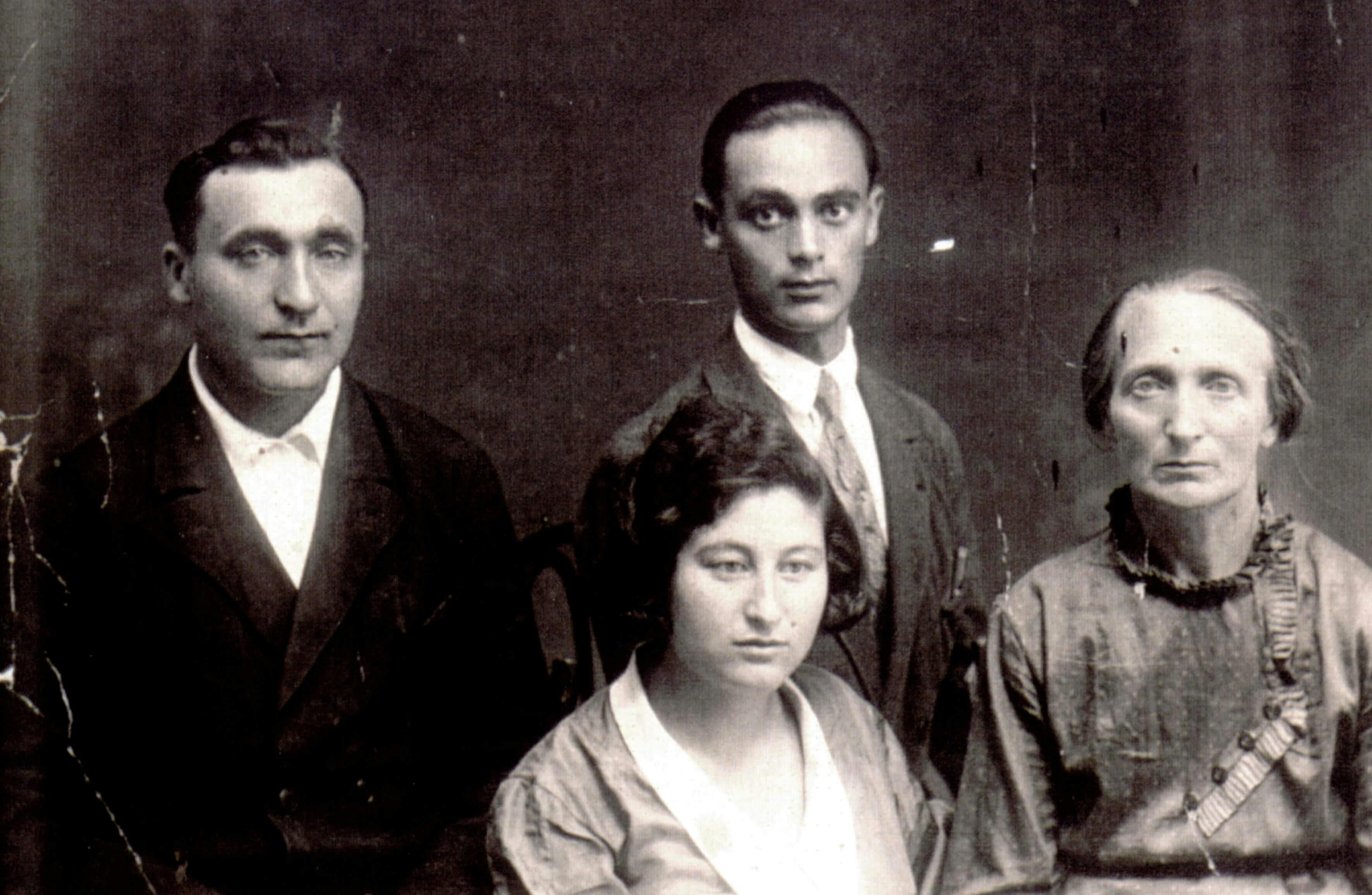
Hundreds of thousands of Ukrainian Jews survived the German onslaught by fleeing eastward
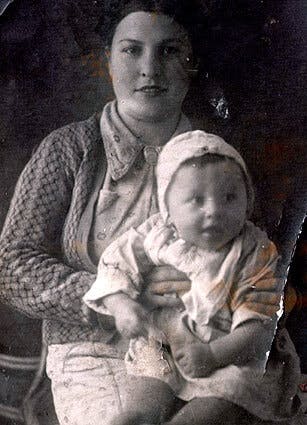
Sophia Abidor
Photo taken in: Buturlinovka, Voronezh oblast, Russia – 1941 Interviewer: Ella Levitskaya
A picture of me and my four-month-old son Iziaslav Abidor, taken to send to my husband Grigori at the front. We evacuated Odessa when the Germans surrounded it. We made our way by boat and train to Buturlinovka where my sister-in-law lived. We lived there for half a year until the Germans attacked Voronezh, when we evacuated further east to Tashkent, Uzbekistan. We found out later that Grigori died when his train was bombed in Marhanets.
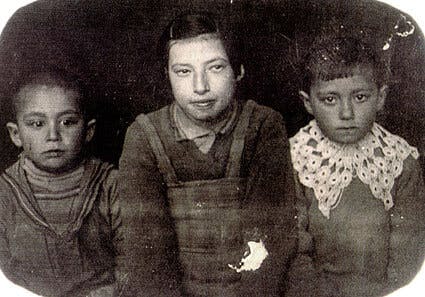
Yelizaveta Zatkovetskaya
Photo taken in: Begovat, Uzbekistan Interviewer: Zhanna Litinskaya
My son Mikhail, left, with my sister-in-law Tsylia’s daughters in Begovat. Both of our husbands were at the front. Tsylia and I worked on a collective farm. We returned to Kalinindorf after it was liberated in 1944, only to find our house occupied. We only got half of it back from the village council, but we were just relieved to have a home.
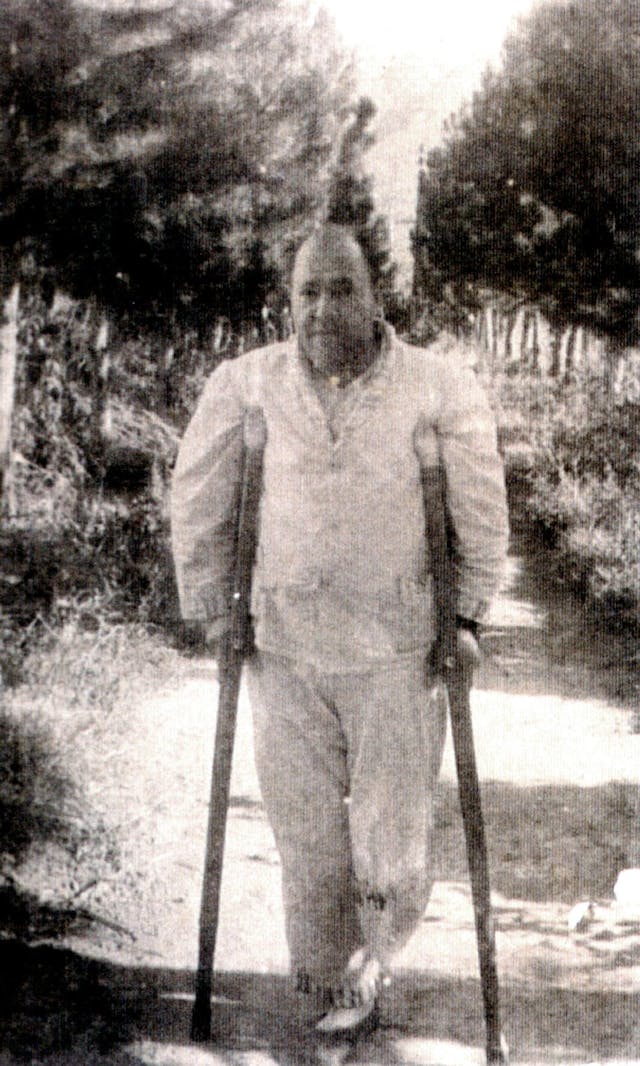
Seraphima Gurevich
Photo taken in: Alma-Ata, Kazakhstan – 1943 Interviewer: Ella Levitskaya
My father, Naum Gurevich, at the military hospital in Alma-Ata, Kazakhstan. My mother and I evacuated there in 1943. On the way we learned that my father had been injured at the front, had his leg amputated and was headed to Alma-Ata on a hospital train. The conditions of the hospital were terrible, with shortages of everything, but my father survived thanks to my mother’s care.
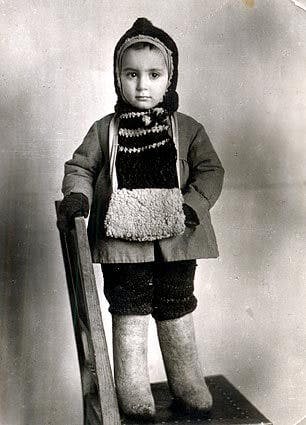
Tsylia Aguf
Photo taken in: Kustanay, Kazakhstan – 1944 Interviewer: Elena Zaslavskaya
Here’s a photo of my daughter Victoria that was taken to send to her father at the front. My husband and I were married in Kazakhstan after we evacuated from Kyiv, but within a week of our wedding he was sent to the front. I was very upset because I was pregnant at such a difficult time, but I gave birth to my strong, healthy daughter in 1942.
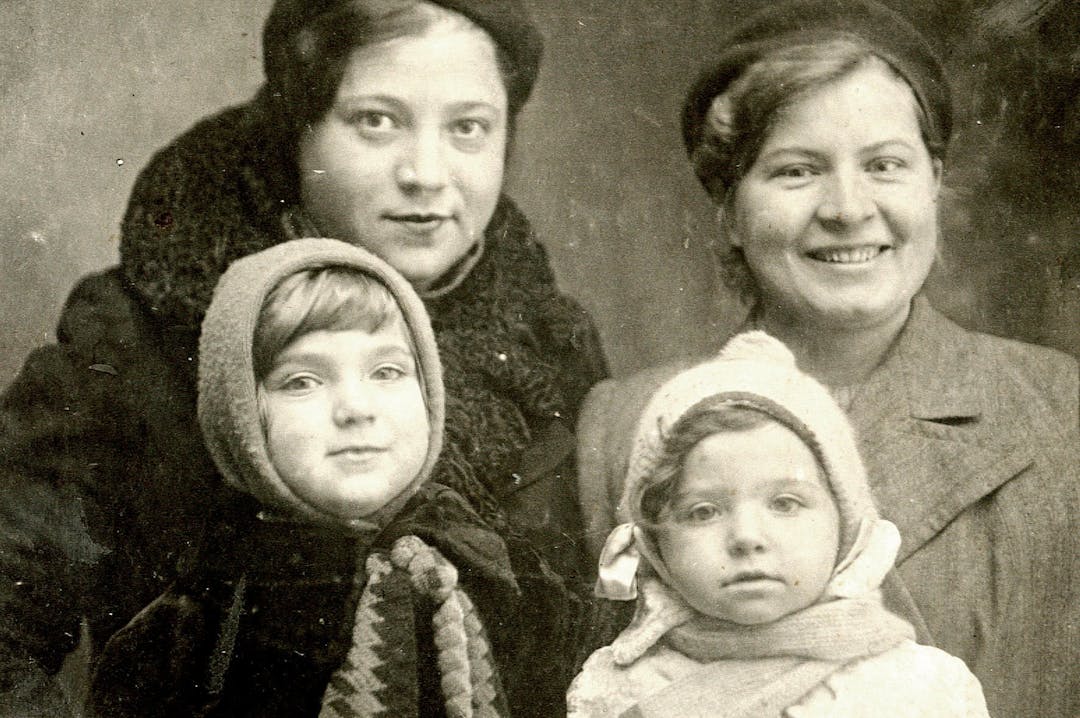
Marina Shoihet
Photo taken in: Chimkent, Kazakhstan – 1943 Interviewer: Vladimir Zaidenberg
Me, first from the left, with my cousin Mara and my aunts. Mother’s brother Grigoriy and his family took us in, and eleven of us occupied two rooms. We didn’t have enough food, so we ate flour and water and cooked some local turtles. Those were hard years, but people always got together at our place for a cup of tea. We girls recited poems and sang songs. We returned to Kyiv in April 1945.
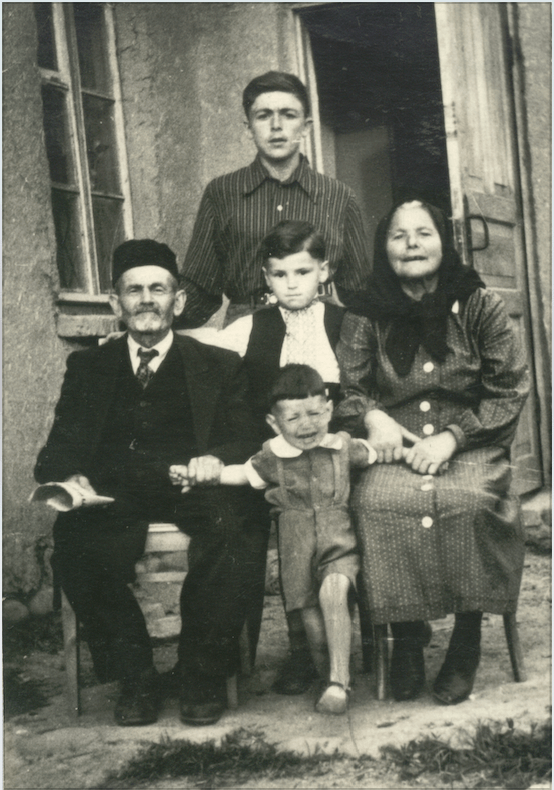
Tatiana Tilipman
Photo taken in: Bastandyk, Kazakhstan – 1954 Interviewer: Ludmila Grinshpoon
My parents, Srul and Hana Krupnik, sitting with their grandchildren. We evacuated to Kazakhstan during the war, and my parents stayed. My son Yevgeni is the youngest one, crying because he doesn’t want to be photographed. My father was religious and very resourceful. During Sukkot he fashioned our makeshift shower cabin into a sukkah, and during Chanukah he fashioned potatoes into lamps and lit them with cotton oil and wicks.
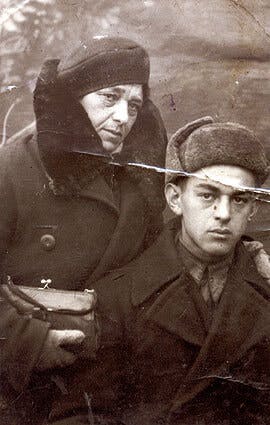
Simon Gonopolskiy
Photo taken in: Kustanay, Kazakhstan – 1942 Interviewer: Ludmila Grinshpoon
My mother and I in evacuation in Kustanay, Kazakhstan, in 1942. We evacuated Odessa in the fall of 1941, and one of the local residents in Kustanay took us in. I attended 7th grade there. Local boys called me zhyd [kike] so I fought them, and they never bothered me again. After 7th grade I went to work and learned the trade of wood turning. I was able to steal some supplies from my job that helped us survive.
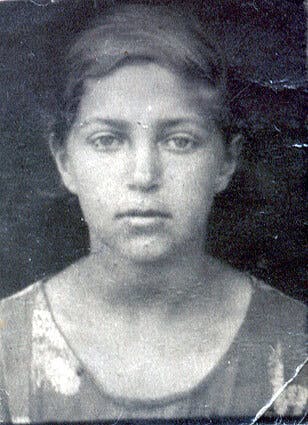
Gherda Kagan
Photo taken in: Andizhan, Uzbekistan – 1943 Interviewer: Natalia Rezanova
This is me in Andizhan, Uzbekistan, where my parents, my grandmother and I evacuated during the war. I was 11 years old, so I went to school there. One of the boys beat me because I was a Jew. We schoolchildren went to perform concerts in hospitals, where I saw many severely wounded and maimed people. Since then, nothing is more frightening to me than the thought of war.